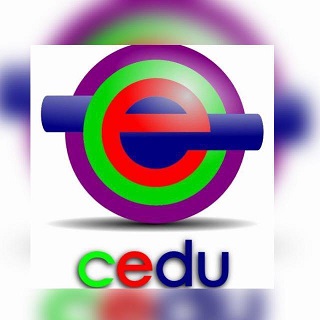WHAT CAN I LEARN FROM CHILDREN'S FABLES? A STUDY OF MOTHERS AND CHILDREN ON SOCIAL SKILLS
Keywords:
Social Skills, Narratives, ChildhoodAbstract
Children's narratives can contribute to the development of the habit of reading and the development of social skills in children. The research aimed to: a) Identify possible contents of social skills classes in fables; b) Assess children's social skills before and after reading fables. Ten children participated in the research, who responded to the Social Skills Assessment System (SSRS/BR), in two moments: before the presentation of seven children's fables and after their presentation. The fables were pre-selected by members of the Social Skills Laboratory - LEHS - for presenting characteristics of children's social skills in their narrative. There was a change in the data referring to the responses in the self-assessment of Social Skills. However, the data showed the need to evaluate other resources, variables and methods such as: durability of time before and after children watch the fables, investigation using a control group, reapplication of the study outside the context of a pandemic, larger sample of participants; application of the inventory in person and presentation of the fables in other ways, through dramatization, reading, etc., to expand the possibilities of investigation and, consequently, of concise results in the work with social skills in different contexts.
Downloads
References
BANDEIRA, M. et al. Validação das escalas de habilidades sociais, comportamentos problemáticos e competência acadêmica (SSRS-BR) para o ensino fundamental. Psicologia: teoria e pesquisa, v.25, n.2, p.271-282, 2009.
DEL PRETTE, A.; DEL PRETTE, Z. A. Habilidades Sociais e Competência Social para uma Vida Melhor. São Paulo: Edufscar, 2017a.
DEL PRETTE, A.; DEL PRETTE, Z. A. Competência Social e Habilidades Sociais: manual teórico e prático. Petrópolis: Vozes, 2017b.
DEL PRETTE, A.; DEL PRETTE, Z. A. Psicologia das Habilidades Sociais na Infância: teoria e prática. Petrópolis: Vozes, 2017c.
DIAS, T. P.; LOPES, D. C.; DEL PRETTE, Z. A. P. Programas de intervenção em habilidades sociais para crianças: propostas para a educação infantil e o ensino fundamental. In: DEL PRETTE, Z. A. P.; et.al. Habilidades sociais: diálogos e intercâmbios sobre pesquisa e prática. Novo Hamburgo: Sinopsys, 2015. p. 128-159.
DIAS, T. P.; DEL PRETTE, Z. A. P. Promoção de automonitoria em crianças pré-escolares: Impacto sobre o repertório social. Acta Comportamentalia: Revista Latina de Análisis de Comportamiento, v.23, n.3, p.273-287, 2015.
ELIAS, L. C. S. Programa Posso Pensar - Desenvolvendo habilidades de solução de problemas interpessoais em escolares. Faculdade de Filosofia, Ciências e Letras de Ribeirão Preto, Universidade de São Paulo, Ribeirão Preto, 2012.
ELIAS, L. C.; AMARAL, M. V. Habilidades sociais, comportamentos e desempenho acadêmico em escolares antes e após intervenção. Psico-USF, v.21, n.1, p.49-61, 2016.
FALCÃO, A. P; et al. PROMOVE-Crianças: efeitos de um treino em habilidades sociais para crianças com problemas de comportamento. Estudos e Pesquisas em Psicologia, v.16, n.2, p.590-612, 2016.
FERREIRA, C. F.; PRETTO, V. A importância da utilização da literatura infantil para o desenvolvimento cognitivo e afetivo da criança. In: XVI Jornada Nacional de Educação-Educação: território de saberes, 2012, Santa Maria. UNIFRA, 2012. p. 1-7.
FONTES, B. A literatura infantil e a formação do aluno por meio das fábulas. Cadernos de Educação, v.5, n.1, p.67-86, 2018.
GRESHAM, F.; ELLIOTT, S. Social skills rating system: Manual. USA: American Guidance Service, 1990.
KESTENBERG, C. C. F.; FALCONE, E. M. Programa de promoção da empatia para graduandos em enfermagem. In: DEL PRETTE, A.; DEL PRETTE, Z. A. P. Habilidades sociais: Intervenções efetivas em grupo. São Paulo: Casa do psicólogo, 2011. p. 115-143,
LAGUNA, T. F.; et al. Educação remota: desafios de pais ensinantes na pandemia. Revista Brasileira de Saúde Materno Infantil, v.21, Supl.1, p.S403-S412, 2021.
LOPES, D. C.; DEL PRETTE, Z. A. Programa multimidia de habilidades sociais para crianças com dificuldade de aprendizagem. In: DEL PRETTE, A.; DEL PRETTE, Z. A. (org.). Habilidades sociais: intervenções efetivas em grupo. São Paulo: Perason Clinical Brasil, 2017.
LOPES, D. C. Programa universal de habilidades sociais aplicado pelo professor: Impacto sobre comportamentos sociais e acadêmicos. 245p. Tese. (Mestrado em Psicologia), Centro de Educação e Ciências Humanas, Universidade Federal de São Carlos, 2013.
MARTINS, M. Educação para os valores, desenvolvimento sociomoral e literatura infanto-juvenil. Revista Aprender, v.33, p. 5-10, 2013. (II Jornadas de Literatura Infanto-Juvenil)
PASCHE, A. D.; et al. Treinamento de Habilidades Sociais no Contexto Escolar-Um Relato de Experiência. Revista de Psicologia da IMED, v.11, n.2, p.166-179, 2019.
RODRIGUES, M. C.; TAVARES, A. L. Desenvolvimento sociocognitivo e histórias infantis: subsídios para a prática docente. Paidéia, v.19, n.44, p.323-331, 2009.
SANTOS, J. P. Literatura infantil como recurso para promoção de habilidades sociais na prática de professoras da educação infantil. 2010. 77p. Dissertação. (Mestrado em Psicologia), Centro de Educação e Ciências Humanas, Universidade Federal de São Carlos, 2019.
SILVEIRA, M. M.; et al. WebPais: orientação de pais on-line voltada para a educação domiciliar em meio à pandemia de COVID-19. Revista Brasileira de Terapias Cognitivas, v.17, n.2, p.113-124, 2021.
SOUZA, M. D; SOARES, A. B. Efeitos de um treinamento de habilidades sociais no comportamento e desempenho acadêmico. Avaliação Psicológica, v.17, n.4, p.417-427, 2018.
STEVANATO, I. S.; et al. Autoconceito de crianças com dificuldades de aprendizagem e problemas de comportamento. Psicologia em estudo, v.8, n.1, p.67-76, 2003.
Published
How to Cite
Issue
Section
License
Copyright
The submission of originals to Cenas Educacionais (Educational Scenes - CEDU) implies the transfer, by the authors, of the publication rights. The copyright for the manuscripts published in this journal is the author(s), with CEDU rights over the first publication. Authors(s) may only use the same results in other publications by explicitly indicating CEDU as the means of the original publication.
Creative Commons License
Except where otherwise specified, the terms of a Creative Commons Attribution-ShareAlike 4.0 International License license apply to the material published in this journal, which allows unrestricted use, distribution and reproduction in any medium provided the original publication is correctly cited.






 This work is licensed with a License
This work is licensed with a License 